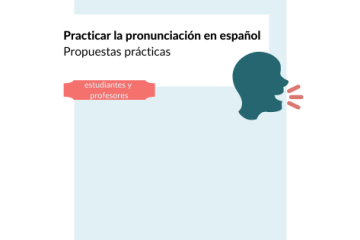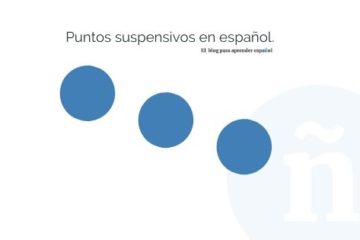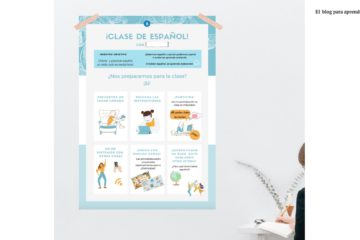Hola a todos.
Aquí tenéis hoy un artículo sobre el español escrito por Karen, una de nuestras lectoras. Esperamos que os guste y os ayude.
Dictionaries
Every language student needs a Spanish-English or Spanish-native language dictionary. Several types of dictionaries are available: a traditional printed book format dictionary, an online dictionary or a dictionary app for a smartphone or other electronic device. Each type of dictionary has some pros and cons.
Paper Dictionaries
Many publishers print traditional paper dictionaries that are available in hardback and paperback formats. Hardback dictionaries often have more information in them but are typically both larger and heavier than smaller paperback dictionaries.
The advantage of traditional dictionaries is that they are relatively inexpensive and truly portable because they do not need to be recharged. The disadvantage is for travel they take up space in your pack and are not extremely light. Also the content of these dictionaries is fixed, they typically do not include very many examples of usage or expressions, and often do not conjugate verbs.
Web Based Dictionaries
When using my desktop computer, I usually rely upon web based dictionaries. Most of the time, I use http://www.spanishdict.com and http://www.spanishdict.com/traductor . The dictionary is thorough moreover has verb conjugations.
When I have a particularly obscure word, I occasionally use the official dictionary from the Real Academia Español, http://lema.rae.es/drae. This dictionary is entirely in Spanish. Even at a solid intermediate B1 level of Spanish, I still like my words explained in English. For unusual colloquial expressions, I often do a simple google search to mixed success.
These dictionaries are free and quite thorough and easy to use when on a fixed computer. Unfortunately they are not usable when not connected to the internet.
Smartphone / Tablet / Electronic Translators
 A number of the traditional publishers now offer dictionaries that are smartphone and tablet apps. These apps are similar to web based dictionaries. The quality of dictionaries vary wildly. I strongly recommend buying one that does not require an internet connection to use. This freedom allows the dictionary to be truly portable while minimizing space and weight.
A number of the traditional publishers now offer dictionaries that are smartphone and tablet apps. These apps are similar to web based dictionaries. The quality of dictionaries vary wildly. I strongly recommend buying one that does not require an internet connection to use. This freedom allows the dictionary to be truly portable while minimizing space and weight.
 You can either buy one of these dictionaries for your smartphone or tablet or buy a separate device that is solely a dictionary. These separate devices were somewhat popular before smartphones, but I think it would probably make more sense to buy even a used ipod for a more general purpose device if you don’t want to invest in a smart phone.
You can either buy one of these dictionaries for your smartphone or tablet or buy a separate device that is solely a dictionary. These separate devices were somewhat popular before smartphones, but I think it would probably make more sense to buy even a used ipod for a more general purpose device if you don’t want to invest in a smart phone.
I personally use the Collins Spanish Dictionary “Complete and Unabridged” on my Iphone and Ipad and am very happy with it. Here are some of the features I really like and recommend you look for in selecting an electronic dictionary.
- A dictionary with an extensive list of words, thorough word explanations, and many usage examples. In the screenshot is the eighth definition of the word “fuerza” and includes many different terms that use the word fuerza such as “fuerza de trabajo”, labor force, or “fuerza de ventas”, sales force. These expressions are also searchable and include many complex phrases such as “en cuanto toque el timbre”, when the bell rings.
- Searching ability in both English and Spanish.You can also look for words from the beginning of the word, the end of the word, or part of an expression. With this dictionary you can select a word in the description and click into its definition.
- Verb conjugations in every tense including the rarely used tenses.
- Searchable word conjugations. This particular feature is particularly important for beginning learners. When you can’t conjugate very well, a conjugated verb form can be very confusing. For example if you see the word hubiera, you do not need to know that it is a form of haber to look up its meaning.
- The dictionary does not require an internet connection as all the data is on the device. This feature is key for international travel as roaming data is quite expensive or at times nonexistent.

I personally usually rely upon my electronic dictionary as it is so powerful. It is also much quicker than using a traditional paper dictionary. The price of these dictionaries can vary but are not particularly expensive. The bigger cost will be the likely investment in a smartphone and in the United States the monthly phone plan.



3 comentarios
Mark · 6 noviembre, 2013 a las 7:30
Hola! Good advice, I also use the Colins one on ipad/iphone, good links through to conjugations and nice examples.
I also use http://www.123teachme.com/spanish_verb_conjugation/saber for a nice conjugations chart.
Un saludo,
Mark
María · 6 noviembre, 2013 a las 7:30
Muchas gracias por la información, Mark.
Un saludo,
EBPAES
Margaret Nahmias · 7 noviembre, 2013 a las 7:30
I use a combination of both monolingual and bilingual. The RAE is more extensive it in the amount of words and definitions for each but it is academic. Espasa Calpe on Wordreference is a simpler one but only offers the most common denfintions of a word Spanishdict also has an app.